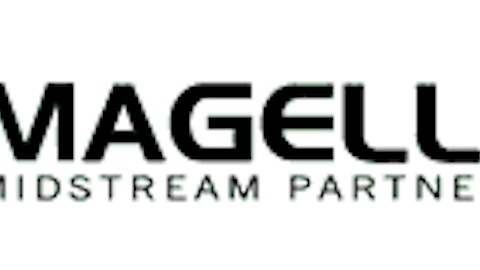Most people stay away from options, and for good reason. But selling options can be a lucrative and conservative strategy, especially when the volatility of the stock market is high. Goldman Sachs recently published a list of 25 stocks with unusually high volatility which could make good candidates for selling put options. By selling a put option you obligate yourself to buy shares of the underlying stock at the strike price if the option is exercised. If you sell an out-of-the-money put option, with a strike price below the current market price, the stock would have to fall in order for the option to be exercised.
The number one rule of put selling is this:
Only sell puts on stocks that you want to own at a strike price which you’re willing to pay.
Selling puts on stock you don’t want to own will almost certainly lead to disaster. Don’t chase premiums.
The interesting thing about Goldman’s list is that it contains a lot of high-quality dividend stocks, some of which are part of my Ultimate Dividend Growth Portfolio. These stocks typically carry low option premiums, but in the current market those premiums are elevated. Let’s look at three stocks from the list, two of which are part of the portfolio: Lorillard Inc. (NYSE:LO), The Clorox Co (NYSE:CLX), and Exxon Mobil Corporation (NYSE:XOM).
The highest yielding cigarette stock
Lorillard Inc. (NYSE:LO) is known for the Newport brand of menthol cigarettes, one of the most popular in the United States. Lorillard Inc. (NYSE:LO) is part of The Ultimate Dividend Growth Portfolio due to its enormous yield – currently 5.04%. An active buyback program is aggressively reducing the share count, and although the payout ratio is quite high, dividend growth can be slow given the high yield. Cigarette companies don’t really need to invest very much back into the business, so nearly all of the free cash flow can go towards dividends and buybacks.
With the stock currently trading at $43.68, let’s look for a strike price about 10% below that. This gives us an adequate buffer against a decline in price. The September $37.50 put option gives us a buffer of 14% with a premium of $74 per contract attached. If the option expires worthless the annualized return of this option is about 8.8%. If the price does fall below the strike price then you’d be obligated to buy the stock at $37.50 per share, with a cost basis of $36.76 per share factoring in the premium. At that price your dividend yield on cost would be 6%.
This situation is a win-win. You either get a 8.8% annualized return or you buy the stock with a 6% dividend yield. It’s hard to go wrong with this one.
The king of bleach, charcoal, and water filters
The Clorox Co (NYSE:CLX) is one of my favorite companies. The Clorox Co (NYSE:CLX) operates a series of leading brands such as its namesake bleach, Kingsford charcoal, and Brita water filters, and it has maintained steady, consistent cash flows over the past decade. While net income has been roughly flat over the past ten years, share buybacks have driven a 6.7% annualized increase in EPS over that time.
The dividend has grown even faster than EPS, increasing by 11% on average each year. Although I expect this rate to slow in the future as the payout ratio has grown, I expect that The Clorox Co (NYSE:CLX) will be able to comfortably grow the dividend at a high-single-digit rate annually. And with a yield of 3.4% after a recent 11% dividend increase Clorox is a fantastic dividend growth stock and part of my Ultimate Dividend Growth Portfolio.
The Clorox Co (NYSE:CLX) doesn’t quite have the same level of premiums as Lorillard Inc. (NYSE:LO), but they’re still elevated given the high-quality nature of the company. The August $80 put option can be sold for $115 per contract and gives us a buffer of a little under 4%. If the option expires worthless the annualized return of this option is about 11.2%. If the price does fall below the strike price then you’d be obligated to buy the stock at $80 per share, with a cost basis of $78.85 per share factoring in the premium. The dividend yield at that price would be an impressive 3.6%.





